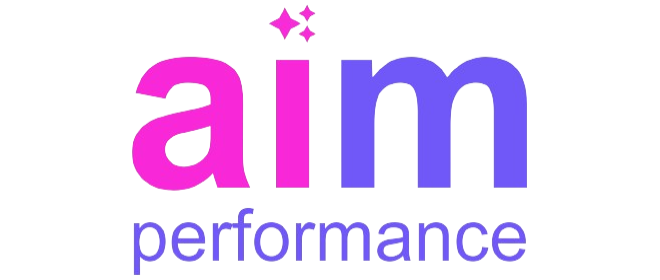Efficient inventory management is critical for operational success, particularly in industries that depend on blue-collar workforce. These employees play a pivotal role in maintaining inventory accuracy, ensuring smooth supply chain operations, and minimizing costs. However, without a structured system to evaluate and optimize their performance, businesses may face inefficiencies. This is where Performance Management Systems (PMS) come in, offering tools to enhance productivity and streamline inventory processes.
The Vital Role of Blue-Collar Workforce in Inventory Management
Blue-collar employees form the foundation of inventory management. They handle tasks such as stocking, tracking, and auditing inventory. Their performance directly influences the accuracy and efficiency of the inventory system.
Despite their importance, blue-collar employees often lack access to recognition and career development opportunities. Performance management bridges this gap by providing tools to monitor, evaluate, and enhance their contributions. With proper guidance, these employees can significantly improve the accuracy and efficiency of inventory operations.
Bridging Communication Gaps in Inventory Management Processes
In inventory management, miscommunication can lead to significant disruptions. Errors in reporting, misinterpretation of tasks, or delayed updates on stock levels can result in losses or operational delays.
A PMS promotes effective communication by establishing clear channels for feedback and updates. Employees can report inventory discrepancies, damaged stock, or low supplies in real-time, allowing supervisors to address issues promptly. This reduces errors and ensures that everyone is aligned, improving overall inventory accuracy.
Leveraging Data-Driven Insights for Smarter Inventory Decisions
Accurate data is the backbone of inventory management. Blue-collar employees generate valuable information, such as stock levels, turnover rates, and order fulfillment times. However, without a proper system, this data might be underutilized.
Performance management systems collect, analyze, and present this data in actionable formats. Managers can use these insights to forecast demand, optimize stock levels, and avoid costly issues like overstocking or stockouts. Data-driven decision-making ensures a more efficient and responsive process.
Enhancing Skill Development for Better Inventory Handling
Inventory management requires specific skills, such as precision, organizational abilities, and problem-solving. Blue-collar employees might struggle with these tasks if they lack adequate training.
Performance management systems help identify skill gaps and provide tailored training programs. By addressing these gaps, workers become more confident and efficient in handling inventory. This leads to fewer errors, better stock management, and a smoother overall process.
Boosting Accountability and Responsibility
One of the common challenges in inventory management is a lack of accountability. When roles and responsibilities are unclear, mistakes and inefficiencies are more likely to occur.
A PMS establishes clear performance metrics and assigns specific responsibilities to each employee. This not only reduces errors but also instills a sense of ownership and accountability among employees. When employees know their performance is being monitored and evaluated, they are more likely to stay focused and committed to their tasks.
Improving Time Management in Inventory Handling
Timely execution of inventory tasks is crucial to maintaining a smooth supply chain. Delays in stock handling or reporting can lead to bottlenecks, impacting other areas of the business.
Performance management helps optimize time management by setting clear deadlines and monitoring task completion. Employees can prioritize their tasks better, ensuring that critical activities like restocking and order fulfillment are completed on time. This not only boosts productivity but also enhances the overall efficiency of inventory management processes.
Reducing Errors and Ensuring Compliance
Inventory errors, such as incorrect stock counts or misplaced items, can result in financial losses and operational disruptions. Additionally, compliance with regulatory standards is essential to avoid legal issues.
Performance management systems help mitigate these risks by automating routine tasks and providing clear guidelines. Employees receive real-time feedback on their performance, which helps them correct errors quickly. Furthermore, PMS ensures that compliance protocols are consistently followed, reducing the risk of non-compliance penalties.
Fostering Continuous Improvement in Inventory Management
Inventory management is a dynamic process that requires constant refinement. Businesses must adapt to changing market conditions, customer demands, and technological advancements.
A PMS encourages continuous improvement by fostering a culture of regular feedback and iterative learning. Employees are motivated to enhance their performance, and managers can implement process improvements based on real-time insights. This iterative approach ensures that the organization remains competitive and responsive to changes.
Aligning Inventory Goals with Organizational Objectives
Effective management directly impacts broader business goals such as cost efficiency, customer satisfaction, and profitability. To maximize its impact, management efforts must align with the organization’s overall objectives.
Performance management ensures this alignment by setting clear goals that connect inventory tasks to larger business outcomes. For instance, reducing stockouts not only improves inventory efficiency but also enhances customer satisfaction. By tracking progress against these goals, businesses can ensure that their inventory management efforts contribute to their overall success.
Conclusion: Unlocking Efficiency in Inventory Management
Incorporating a robust Performance Management System into inventory management can significantly enhance the efficiency and productivity of blue-collar employees. By improving communication, fostering accountability, and driving continuous improvement, PMS creates a seamless and effective inventory management process.
Embrace the power of performance management to unlock the full potential of your blue-collar workforce and achieve operational excellence.










